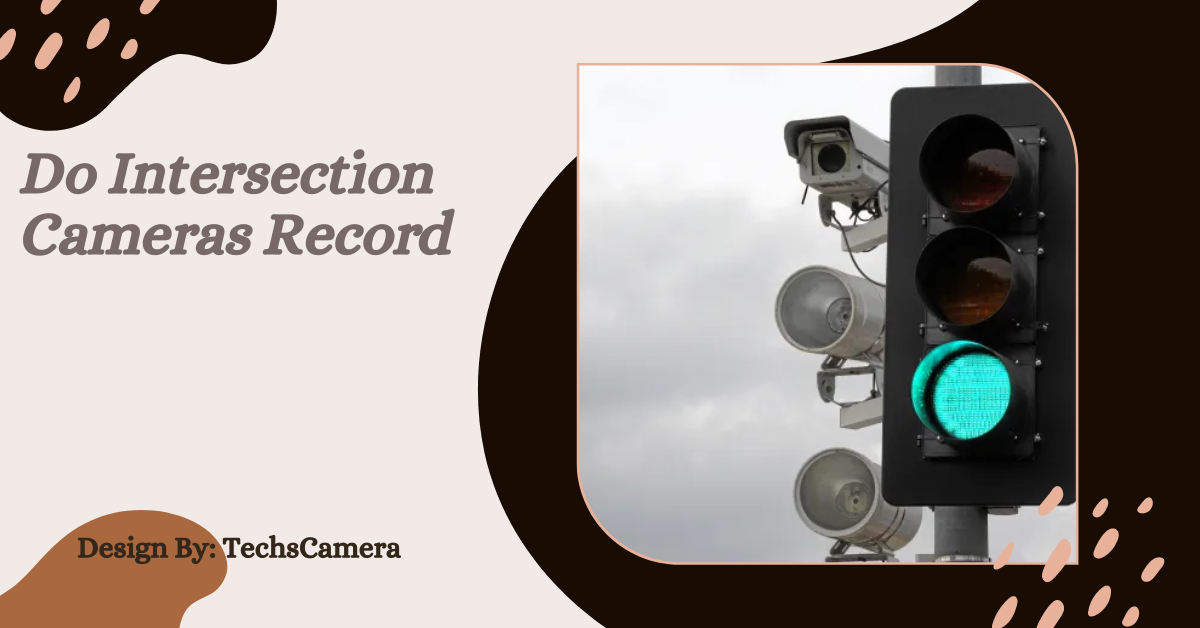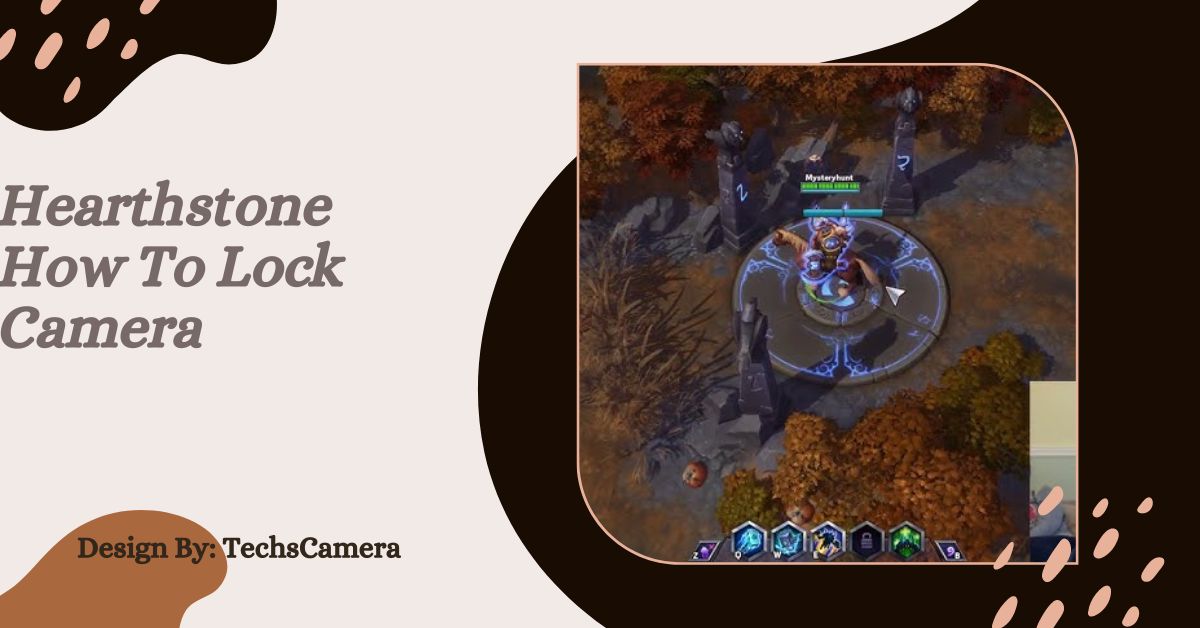Yes, intersection cameras do record, with the extent of recording depending on the type of camera and its specific purpose, such as red-light enforcement, speed detection, or traffic surveillance.
In the realm of modern traffic management, intersection cameras play a crucial role in monitoring and regulating vehicular and pedestrian movement. With concerns about privacy and the effectiveness of these systems, many drivers and pedestrians wonder:
Do intersection cameras record? This article delves into the functionalities, purposes, and implications of intersection cameras in today’s urban landscapes.
Understanding Intersection Cameras:

Intersection cameras, often referred to as traffic cameras, are installed at busy crossroads to monitor traffic flow, enforce traffic laws, and enhance public safety. These cameras are part of a broader traffic management system designed to reduce congestion, prevent accidents, and ensure compliance with traffic regulations.
Types of Intersection Cameras:
- Surveillance Cameras: Primarily used for monitoring traffic patterns and road conditions in real-time. These cameras provide a live feed to traffic control centers but do not typically record continuously.
- Red-Light Cameras: Specifically designed to capture images and video footage of vehicles that run red lights. These cameras are triggered by sensors that detect when a vehicle enters the intersection after the light has turned red.
- Speed Cameras: Deployed to capture vehicles exceeding speed limits. These cameras often work in tandem with radar or laser speed detection systems.
- License Plate Recognition Cameras (LPR): These cameras capture images of license plates to monitor and track vehicle movements. They are used for various purposes, including toll collection, law enforcement, and identifying stolen vehicles.
Do Intersection Cameras Record:
The recording capability of intersection cameras varies depending on their type and intended use:
- Red-Light Cameras: Yes, red-light cameras do record. When a vehicle runs a red light, the camera system captures multiple images and short video clips to document the violation. These recordings typically include a clear image of the vehicle’s license plate and the driver’s actions leading up to and during the infraction.
- Speed Cameras: Similar to red-light cameras, speed cameras also record evidence of traffic violations. These recordings serve as proof for issuing speeding tickets and include details such as the vehicle’s speed, the time of the offense, and the vehicle’s registration.
- Surveillance Cameras: Unlike enforcement cameras, surveillance cameras may not record continuously. Instead, they often provide a live feed to traffic management centers. Some systems, however, do have recording capabilities for specific purposes, such as investigating accidents or monitoring high-risk areas during peak hours.
- License Plate Recognition Cameras: These cameras typically record and store data on vehicle movements, including time, date, and location. The recordings are used for various applications, such as tracking stolen vehicles and monitoring traffic flow.
Also Read: Do Car Washes Have Cameras – Exploring Surveillance Systems!
How Long Are Recordings Kept:
The retention period for recorded footage varies by jurisdiction and the purpose of the recording. Typically:
- Enforcement Cameras: Footage from red-light and speed cameras is kept long enough to process violations and handle any legal disputes. This period can range from a few weeks to several months.
- Surveillance Cameras: If recorded, the retention period for surveillance footage depends on the policies of the traffic management authority. It could be as short as 24 hours or extend to several weeks, depending on the storage capacity and the importance of the footage.
- License Plate Recognition Cameras: The retention period for LPR camera data varies widely based on the application’s purpose and legal requirements. Some jurisdictions may retain data for days, while others may keep it for years.
Privacy Concerns and Legal Implications:
The use of intersection cameras raises significant privacy concerns. While these cameras are intended to enhance public safety, their recording capabilities can lead to debates about surveillance and the right to privacy. Key points include:
- Privacy Laws: Many regions have strict regulations governing the use of surveillance footage to protect citizens’ privacy rights. These laws dictate how footage can be used, who can access it, and how long it can be retained.
- Transparency and Accountability: Traffic management authorities must ensure transparency in how intersection cameras are used and maintain accountability for the data collected. This includes publicizing policies on data usage and providing avenues for individuals to contest violations.
Benefits of Recording Intersection Cameras:

Despite privacy concerns, recording intersection cameras offer several benefits:
- Enhanced Traffic Safety: Recorded footage helps in identifying and penalizing traffic violators, thereby deterring dangerous driving behaviors and reducing accidents.
- Accident Investigation: In the event of an accident, recorded footage provides crucial evidence to determine fault and understand the circumstances leading to the incident.
- Traffic Management: Analyzing recorded data helps traffic authorities optimize traffic flow, plan infrastructure improvements, and implement effective traffic control measures.
- Crime Prevention and Resolution: Intersection cameras can aid in criminal investigations by providing valuable footage of criminal activities or suspects.
- Insurance Claims: Recorded footage can be used to support or refute insurance claims, providing clear evidence of incidents and reducing fraudulent claims.
Challenges and Limitations:
While beneficial, intersection cameras also face challenges:
- Technical Limitations: Cameras may malfunction, suffer from poor image quality, or fail to capture critical moments due to their positioning or environmental conditions.
- Public Resistance: Concerns over surveillance and privacy can lead to public resistance against the installation and use of intersection cameras.
- Maintenance Costs: Regular maintenance and updates to the camera systems can be costly for municipalities and traffic management authorities.
- Data Security: Ensuring the security of recorded data is crucial to prevent unauthorized access and misuse. Traffic management authorities must implement robust security measures to protect the data collected by intersection cameras.
Technological Advances in Intersection Cameras:
Advancements in technology have significantly improved the capabilities of intersection cameras:
- High-Definition Imaging: Modern cameras offer high-resolution imaging, providing clearer and more detailed footage for better identification of vehicles and individuals.
- Artificial Intelligence and Machine Learning: AI and machine learning algorithms enhance the accuracy and efficiency of traffic monitoring and violation detection. These technologies can analyze large volumes of data quickly and identify patterns or anomalies.
- Integration with Smart City Infrastructure: Intersection cameras are increasingly integrated into broader smart city initiatives, enabling seamless communication and data sharing between different traffic management and public safety systems.
- Wireless and Solar-Powered Cameras: Innovations in power and connectivity have led to the development of wireless and solar-powered cameras, reducing installation costs and increasing deployment flexibility.
Also Read: Howe Island Ferry Camera – A Comprehensive Guide!
Future Trends in Intersection Camera Technology:
The future of intersection camera technology holds promising developments:
- Enhanced Real-Time Analytics: Future systems will offer more sophisticated real-time analytics, enabling instant identification of traffic violations and rapid response to incidents.
- Integration with Autonomous Vehicles: Intersection cameras will play a crucial role in the safe operation of autonomous vehicles, providing essential data on traffic conditions and potential hazards.
- Privacy-Preserving Technologies: Advances in technology will lead to the development of privacy-preserving surveillance systems, balancing the need for security with individuals’ privacy rights.
- Expanded Use of Drones: Drones equipped with cameras could supplement fixed intersection cameras, providing additional coverage and flexibility in monitoring traffic and incidents.
FAQ’s:
1. Do all intersection cameras record footage?
No, not all intersection cameras record footage. Red-light and speed cameras typically record, while some surveillance cameras may only provide a live feed.
2. How long is the footage from intersection cameras kept?
The retention period varies by jurisdiction and purpose, ranging from a few days to several months.
3. What are red-light cameras?
Red-light cameras capture images and videos of vehicles running red lights to enforce traffic laws and issue violations.
4. Are there privacy concerns with intersection cameras?
Yes, privacy concerns exist, and many regions have strict regulations to protect individuals’ privacy rights regarding the use of recorded footage.
5. What technological advancements are improving intersection cameras?
High-definition imaging, AI and machine learning, integration with smart city infrastructure, and the development of wireless and solar-powered cameras are enhancing intersection camera capabilities.
Conclusion:
So, do intersection cameras record? The answer depends on the type of camera and its specific purpose. Red-light and speed cameras certainly record to enforce traffic laws, while surveillance cameras may or may not record, focusing more on real-time monitoring. Despite the privacy concerns and technical challenges, the benefits of recording intersection cameras in enhancing road safety and aiding law enforcement are undeniable.



